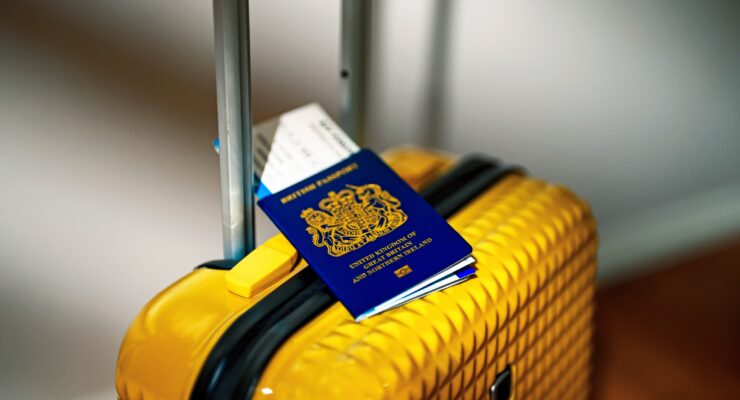Finding a place to live is the main upcoming battle for Working Holiday Visa holders arriving in Canada. High prices, housing shortages, scams… the sheer thought of calling potential roommates or landlords is a source of anxiety for many, which is completely understandable considering you’re also new to Canada and the local housing market.
Don’t stress out, read these six tips instead.
1. Don’t sign anything before arriving in Canada
First of all, don’t sign a lease before arriving in Canada. Sure, it would be comforting to know that you’re all sorted before the big adventure, but committing to a lease from abroad is rarely a good idea. First, it’s just too easy to get scammed. Second, it’s hard to pick a neighbourhood in a city you don’t know (yet). Third, if it’s shared accommodation, it’s always best to meet your future roommate(s) in person to make sure it’s a good match.
The best thing to do is to book an Airbnb or a hostel for two or three weeks, more if needed, while you are looking for a place. You can even sublease an apartment—this is completely legal in Canada provided the landlord gives written permission—, an option often cheaper than an Airbnb.
Short-term accommodation solutions give you time to check out rental units, choose a neighbourhood you like, meet future roommates, and make a wise decision for the longer term.
Keep in mind that most ads are posted a month before the place becomes available. However, tenants who need to break a lease early are often responsible for finding a new tenant, so you may be able to move in quicker.
It’s completely normal to feel anxious about coming to Canada without a signed lease agreement but it pays off to wait and look for your perfect place after you arrive.
2. Make Facebook Marketplace your new best friend
Facebook Marketplace is a goldmine for housing listings, whether you’re looking for a shared place, sublets or single units. Note that many Facebook groups, especially neighbourhood- or city-specific groups, also post available rentals.
Classified websites like Kijiji are also an option, but there are fewer ads, especially if you’re looking for a room in a shared place.
And if you deleted Facebook or never created a profile, now is the time to (re)create one. It will make your house-hunting efforts much easier.
Pro tip—when replying to a Marketplace ad, it’s best to contact the landlord or current tenant through the messaging system instead of posting on their private profile. Your chances of a response will be higher. However, for private group ads, you don’t have a choice, messaging won’t be an option.
3. Research local market prices
Researching the local housing market should be high on your pre-departure to-do list. This is a great way to fine-tune your budget and maybe decide where you want to stay if you’re still flexible with your plans.
The best way to get insights into the Canadian housing market is to browse ads and join relevant Facebook groups.
Compare apples to apples—a studio apartment will be much more expensive in Vancouver, Toronto or Ottawa than in Peterborough or Saskatoon. Rents are through the roof in all major cities, much like in many other countries around the world. Budget accordingly or tweak your plans (you could consider smaller cities or occasional volunteering for accommodation and meals).
Pay close attention to what’s included in the rent. Some units are furnished, others are bare. Utilities (hydro, Internet, etc.) might be included or extra.
And depending on the place you choose, you may have to budget for extra personal expenses as well, for instance, tenant insurance (not mandatory but highly recommended) or a bus pass (if you end up in suburbia).
4. Be quick and responsive
Securing a rental in a tight market requires great communication and organisational skills. Sure, Canada is a big country and plenty of ads are posted every day but demand is also high for affordable options.
Sign up for alerts to be notified when a place matches your criteria. Browse groups and ads several times a day. Quickly contact potential roommates and landlords when something catches your eye (and don’t worry if they are slow to get back to you, they may be swamped with offers!) Have all required documents ready for applications.
It’s best to work full-time on your housing needs when you arrive because it can get pretty time-consuming. If you’re working, try to set a time in your schedule to call or email landlords, inspect properties, meet roommates, etc.
5. Put your best foot forward
You get it, competition is tough. So instead of sending the default “Is this place still available?” message, try to be personable.
If you’re contacting potential roommates, introduce yourself briefly and make it easy to create a connection. You could share your typical schedule, hobbies, past (positive!) roommate experiences, etc.
If you’re contacting a landlord, try to come across as a responsible and trustworthy potential tenant. You may want to mention your job (works best for typically steady professions, much less so if you’re a busker…) and availability for unit visits.
6. When in doubt, shoot for the stars
Sometimes, it pays off to contact roommates and landlords even if you’re not a perfect match. You have nothing to lose, and you never know!
For instance:
- When a shared place is looking for a female or male roommate and you’re the opposite gender. Contact them anyway if it’s your dream place. If you’re a good match, you may be invited to a first meeting.
- When you have pets and it’s a “no pets” place. Try to describe your pet’s personality and send some photos or a certificate from a previous landlord.
- When a credit check is required and you don’t have a credit history as a newcomer to Canada. Offer other documents to prove your reliability such as a job offer, pay slips, proof of funds, rent receipts or a letter from a former landlord, a bank letter stating that you have paid off a loan, etc.
Good luck!
















 Français
Français English
English




0 comments
{{like.username}}
Loading...
Load more